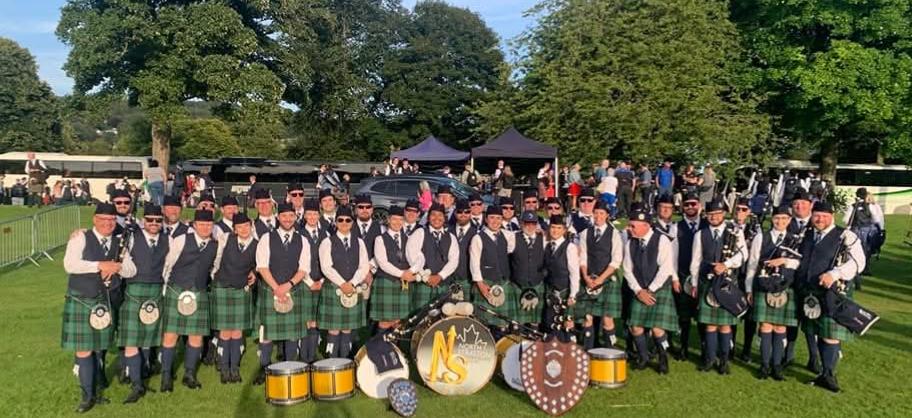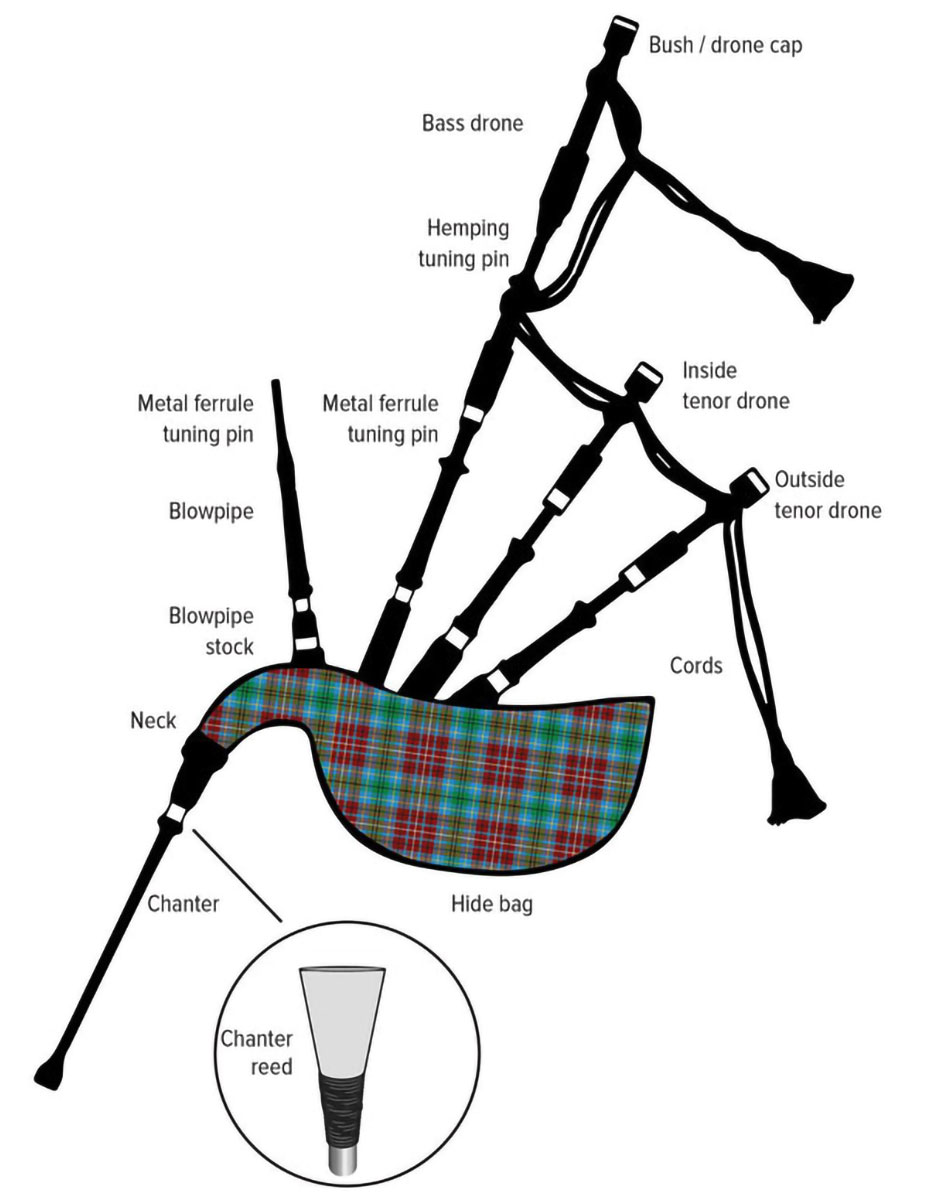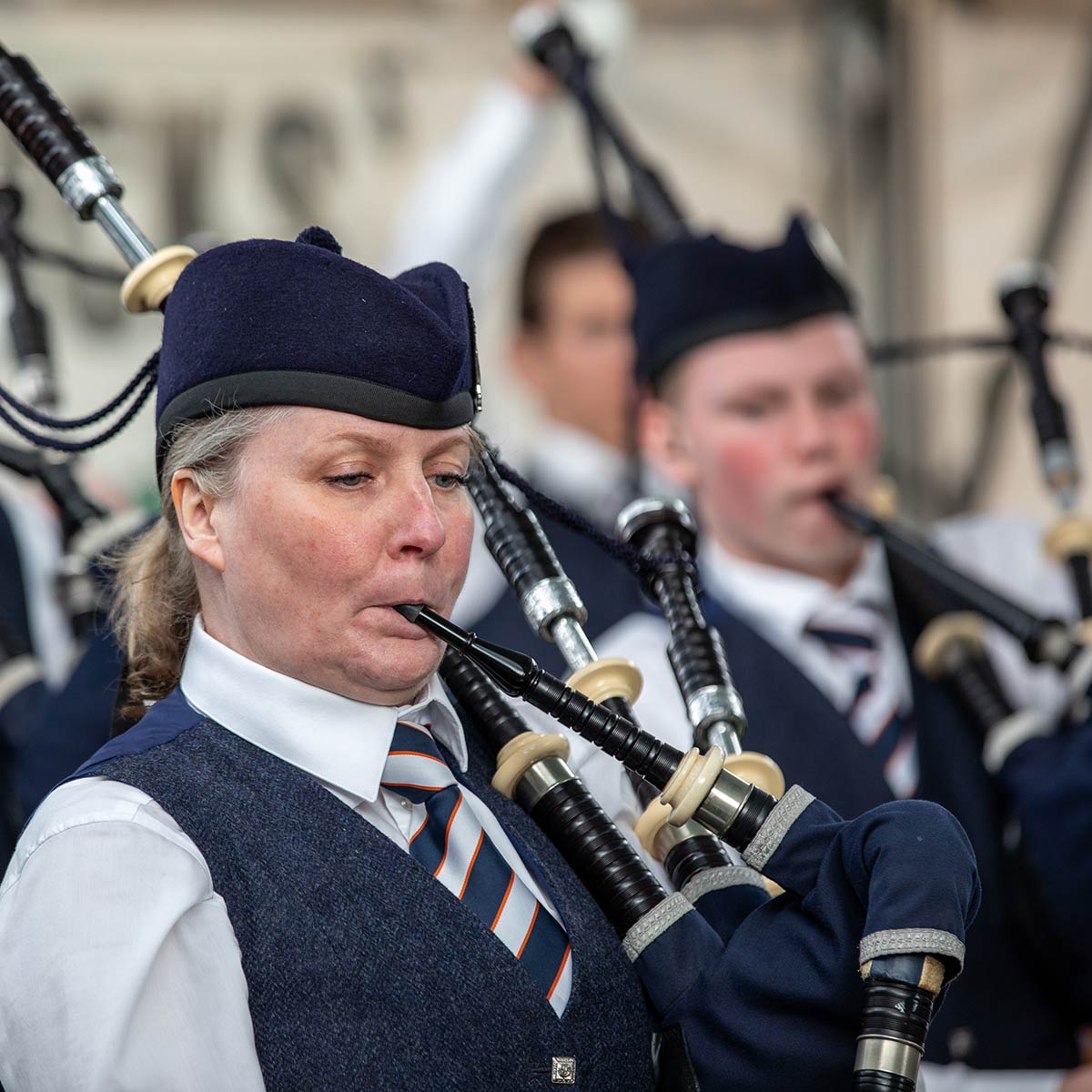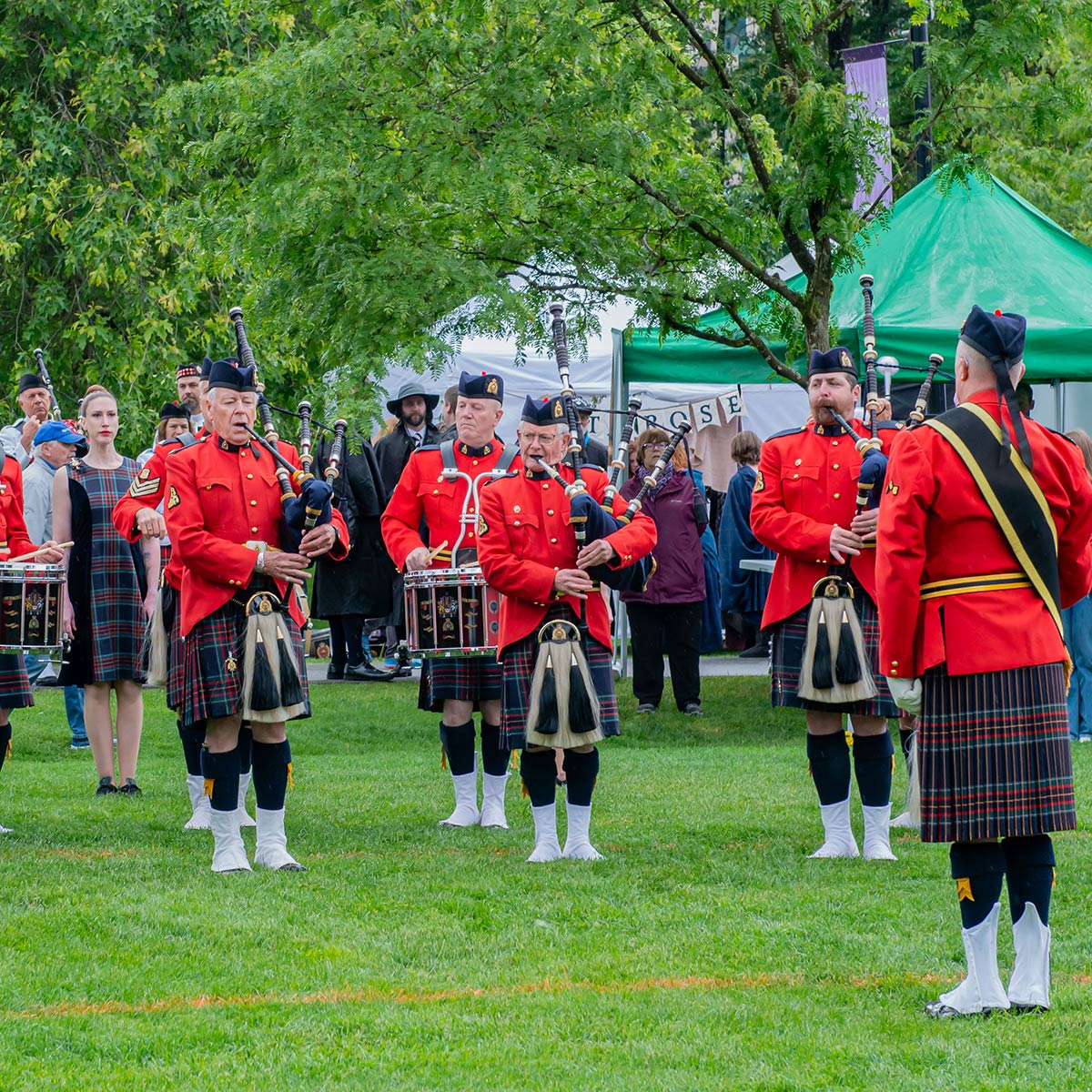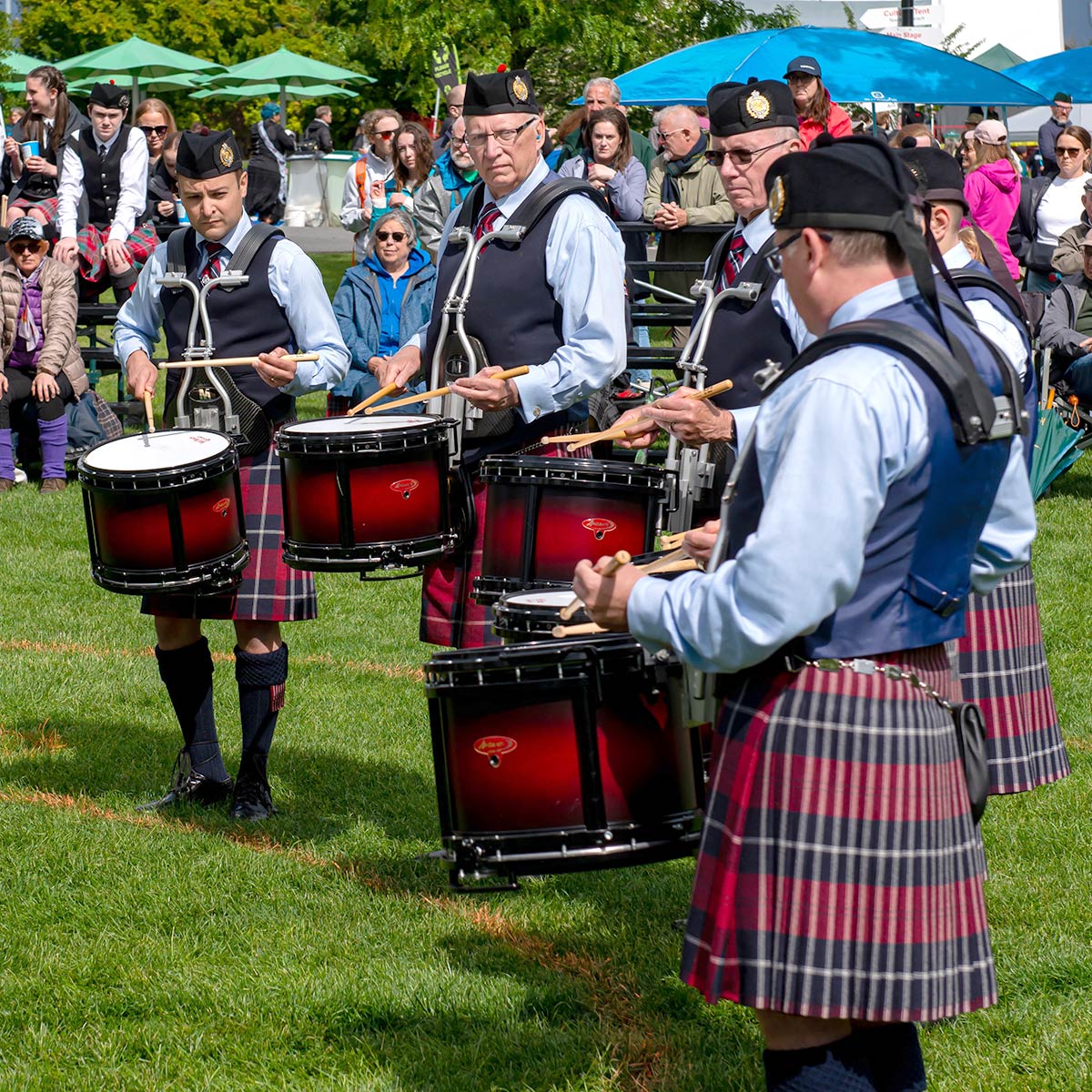Experience the heart of Scottish culture as world-class pipe bands fill the air with the unmistakable sounds of bagpipes and drums.
The most common form of pipe band, the Scottish pipe band, consists of a section of pipers, a section of side drummers known as a drum corps, several tenor drummers and a single bass drummer. The tenor drummers and bass drummer are often referred to collectively as the midsection.
Standard instrumentation for a pipe band is from 6 to 25 pipers, 3 to 10 side drummers, 1 to 4 tenor drummers and 1 bass drummer. Occasionally this instrumentation is augmented to include additional instruments (such as additional percussion instruments or keyboard instruments), however this is typically done only in concert settings.
Since 1930, when the Scottish Pipe Band Association (Now the Royal SPBA) was formed, there has been an event known as the World Pipe Band Championships held in Glasgow every August. For competitive bands, the title of World Champion is highly coveted, and this event is seen as the culmination of a year’s worth of preparation, rehearsal and practice. Until 1987, when the Canadian 78th Fraser Highlanders band was awarded the Grade One title, every band that had won had been Scottish. In recent years however, this has changed and several non-Scottish bands have had success, most notably the Simon Fraser University Pipe Band, and the Field Marshal Montgomery Pipe Band of Ireland.
In the world of competitive piping, there are four levels. Starting at Grade 4 (or grade 5 in some places), bands can rise through the ranks to the highest grade 1. In BC, there are many bands from Grade 4 to 1. All these bands compete at various highland games (including ScotFestBC) and several indoor band and solo competitions throughout the year. In 1995, the SFU Pipe Band won the world pipe band championships in Scotland, the first of five victories.
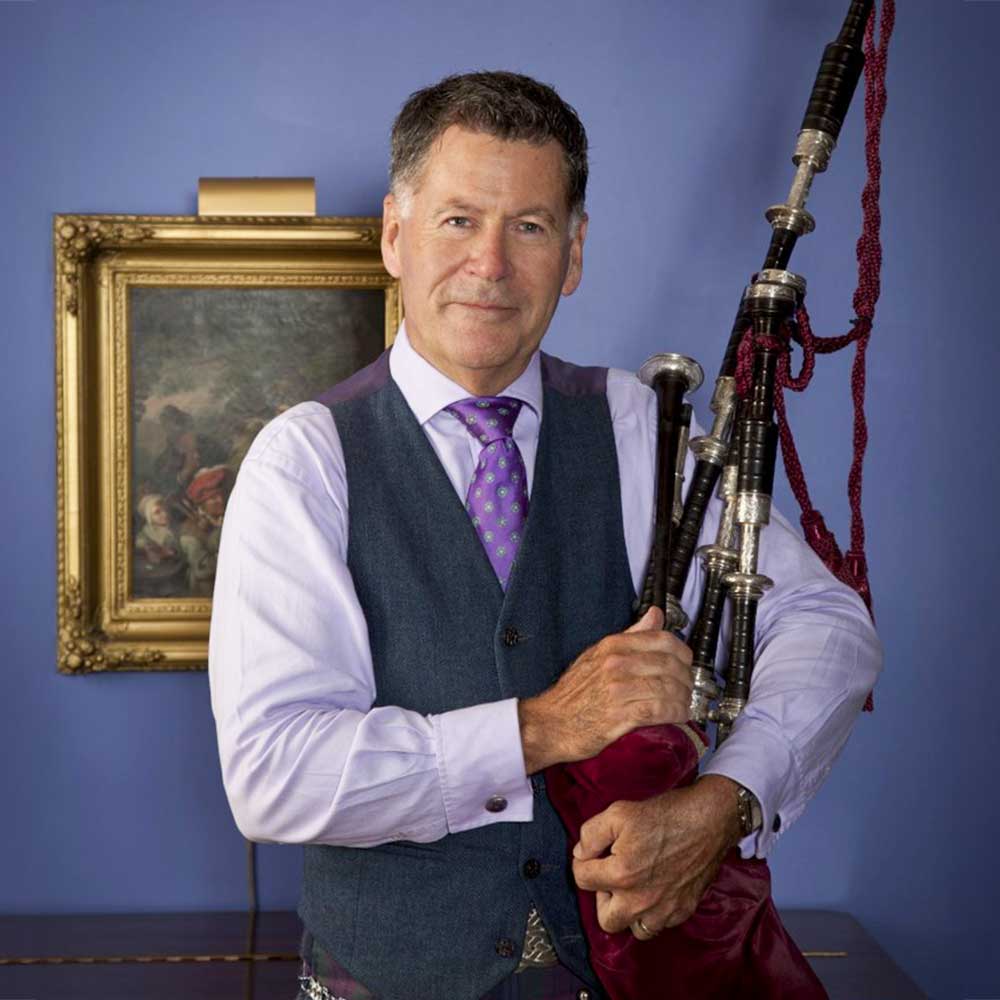
Bob Worrall
Bob Worrall is one of North America’s leading teachers, adjudicators and performers. Bob is a respected composer, having published three successful collections of bagpipe music. He is featured on three solo piping recordings and was a member of the folk group “Scantily Plaid”.
The British Columbia Pipers’ Association administers the solo piping, drumming, and pipe band events. Registration for all ScotFestBC 2025 events opens in April 2025.
Open Piobaireachd Friday, June 20 5:00 pm
Solo Piping and Drumming: Saturday June 21 9:00 am
Pipe Band competitions: Saturday, June 21 1:30 pm – 5:00 pm
Competitors visit the BCPA website for the Order of Play. Results of competitions are available here.
You Be The Judge…
Whether adjudicating a solo player or pipe band contest, the decision of a judge is dependent upon a number of variables beginning with the playing level of the competitor. A beginner, for example, is not held to the same standards as a professional. Beginners play in a grade 5 band. As players gain more experience and perform with higher skill level, they progress upward through grades 4, 3, 2, with grade 1 being the highest. Solo competitors can play in the professional class after grade 1.
The primary elements judges use to consider their prizes are:


